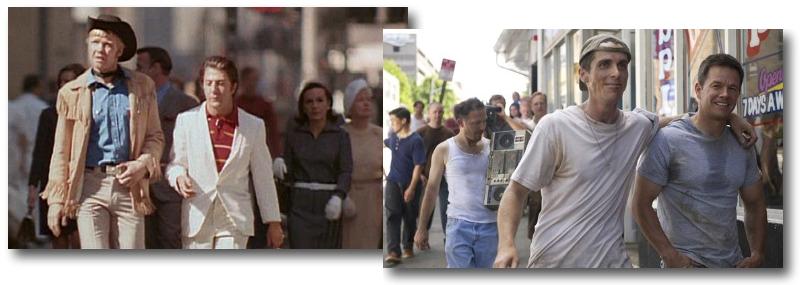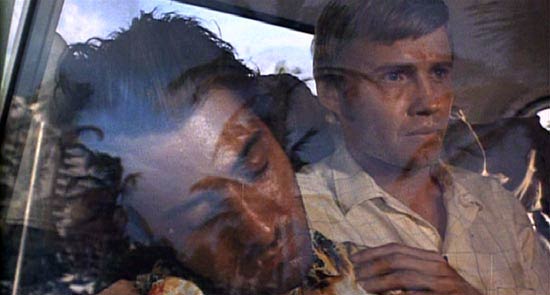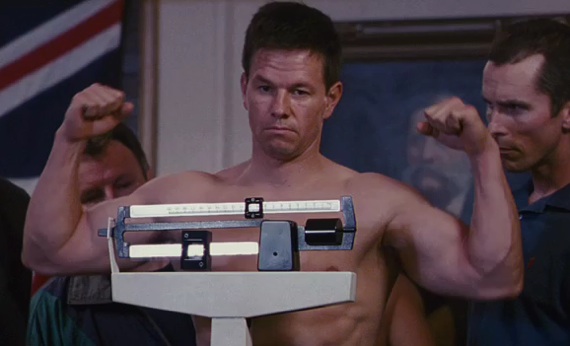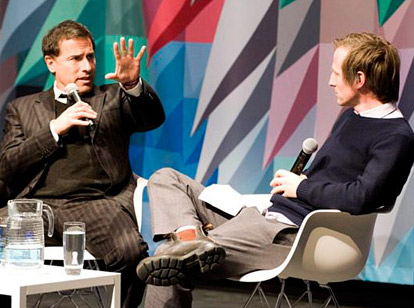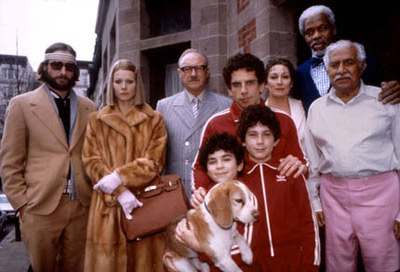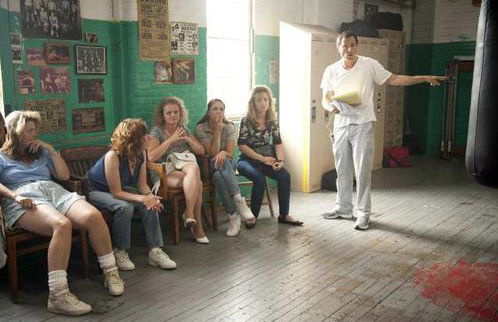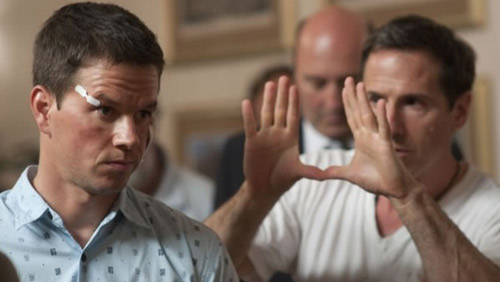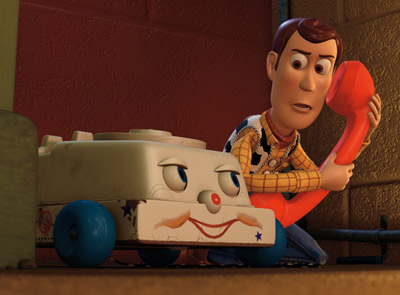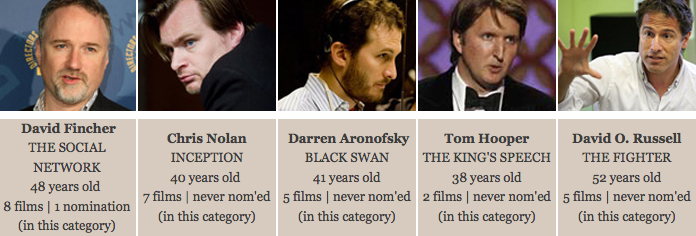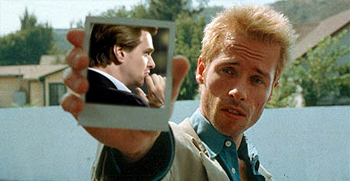Reader Writes: David O. Russell and Keira Knightley *LIVE*
 Tuesday, February 8, 2011 at 6:12PM
Tuesday, February 8, 2011 at 6:12PM Wanted to share two recent e-mails I got from longtime TFE readers about their own cinematic-adjacent adventures seeing the stars live.
BBats recently took in a double feature of Citizen Ruth and Flirting With Disaster at Cinefamily and Oscar-nominated directors David O. Russell (The Fighter) and Alexander Payne (Sideways) spoke to the crowd.
 Alexander Payne and David O. Russell at the Cinefamily event
Alexander Payne and David O. Russell at the Cinefamily event
BBats writes:
I was listening to your latest podcast (love it) and wanted to share Russell's answer to a question about Nailed and if it will ever come out. Russell said that the production company used Nailed, Taylor Hackford's Love Ranch, and a Philip Noyce film that would have starred Scarlett Johansson (never shot) as a shell game, shifting money between the three when it was needed. Hackford wouldn't work on Love Ranch unless he got paid first, and Russell got shut down for the final time that same week -- they had been shut down 7 or so times. When trying to get it going again, Russell shopped it around in rough state like a "two dollar whore" and nobody wanted it. He said he wanted to move on and leave all the badness behind him.
And with the success of The Fighter, I guess he won't be needing to beg for much work (my opinion).
The original title for Citizen Ruth was "The Devil Inside." Mr. Payne said two of his favorite jokes he's written are when Ruth punches the kid and the helicopter scene where Ruth shouts at her mother. (I won't spoil the joke for those who haven't seen it). The movie was given the go ahead by Harvey Weinstein in a Lincoln towncar. He was being pestered by producer Cathy Conrad and he relented saying, "Oh all right." It took five years to get the greenlight.
 Elisabeth Moss and Keira Knightley in The Children's Hour
Elisabeth Moss and Keira Knightley in The Children's HourOverall I thought that the entire production was strong. The set design was effective if sparse, with the boarding school set consisting of blueish grey wood panels and a very tall bookshelf.The first half, which could use some pacing work, focuses mainly on the young school girls. I have to admit that Hannah grated as Mary, sticking to one note of ‘lying angry little girl’ and rarely getting out of it. However, there is a wonderful pivotal scene in the first half between Moss and Carol Kane (who plays her aunt) where they discuss Karen's (Knightley's) engagement. Kane pushes and prods and Moss gets angry while trying to control her emotions, trying not to admit what she knows is true.
The second half of the play is much stronger, Ellen Burstyn does nice subtle work as the grandmother who is inclined to believe the child's lie. The final scenes are very strong. Moss is nothing short of exceptional, from her initial despair, to her confrontation with her Aunt, to the joy when she thinks they've been saved to her utterly heartbreaking confession of love. Knightley never overplays it and is mostly reactive, but the moment when she lets all her rage and fury flow out lingers after you leave the theater.



